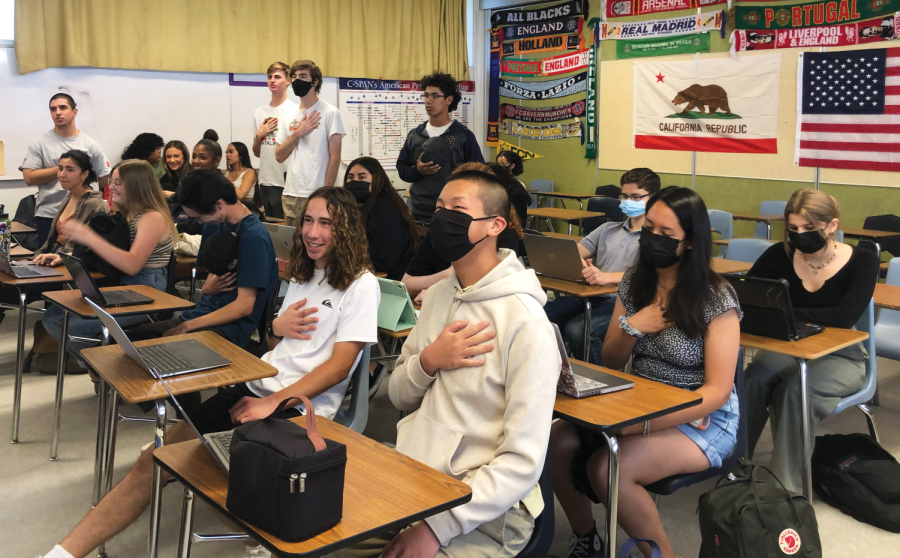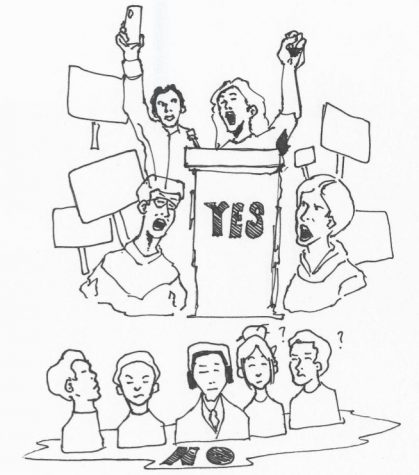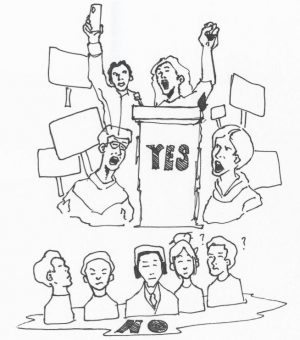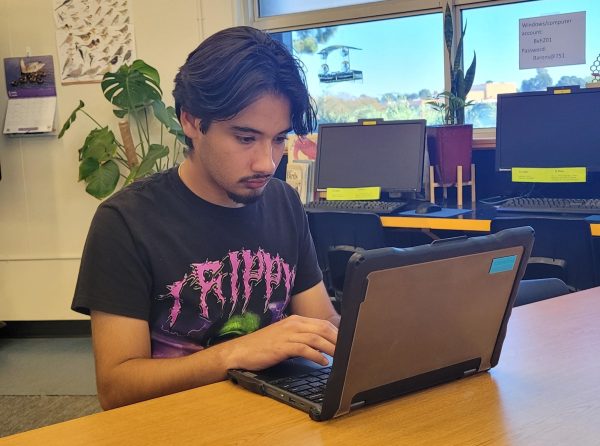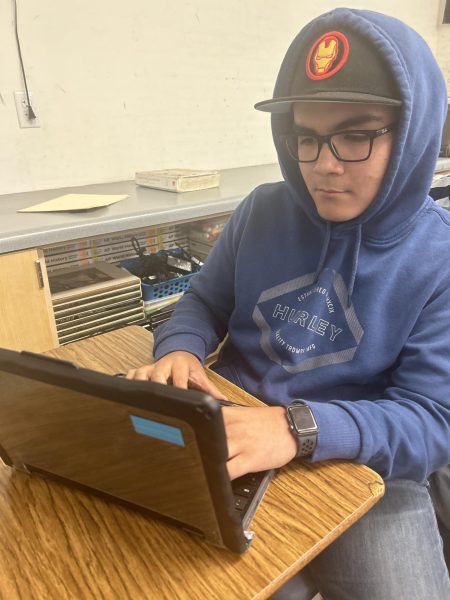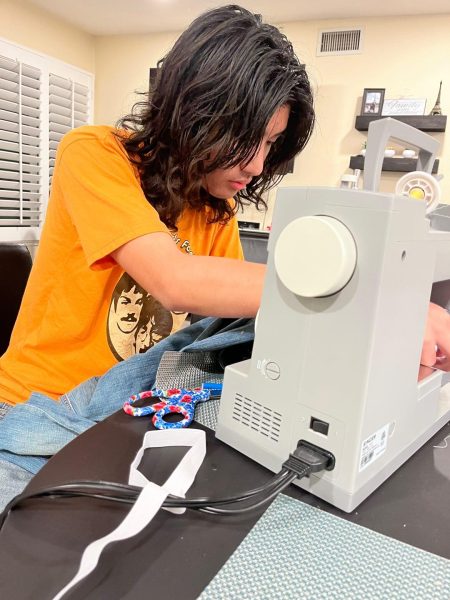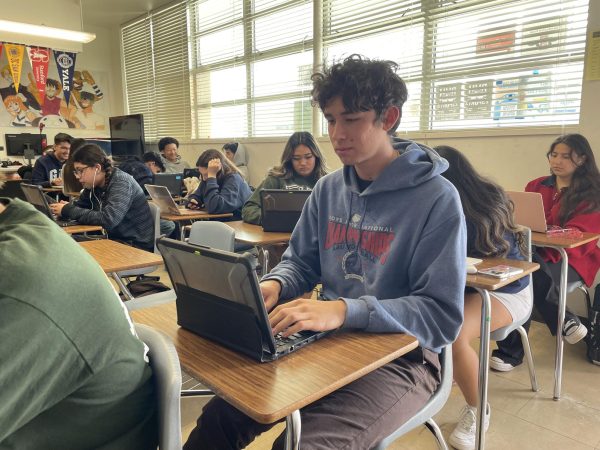Take a stand or take a seat
Students share their stance on standing for the Pledge of Allegiance
Four students in Mathew Lambert’s second period AP Government class stand to recite the pledge of allegiance. The rest of the class chooses to remain seating during the pledge.
May 13, 2022
The Pledge of Allegiance is an oath of loyalty to America. It is practiced in schools across the nation and recited by nearly every student in America upon entering school.
“Please pause where you are and stand for the Pledge of Allegiance.”
At 9:15 a.m. during the first few minutes of second period these words are uttered to commence the class. The Pledge of Allegiance is delivered over the public address system at Bonita Vista High (BVH) for students to repeat. Before the pandemic, it was commonplace to find BVH students standing and reciting the pledge in classrooms. However, after returning from the pandemic, there has been a noticeable shift in the amount of people who stand and recite the pledge. Reasons for standing and not standing vary, but it is due to these beliefs that dictate what an individual decides to do during the Pledge of Allegiance.
“It is a contribution to our country and if you sit down, you’re not being respectful,” standing student and freshman Kaitlin Bertrand said. It is a contribution to our country and if you sit down, you’re not being respectful. — freshman Kaitlin Bertrand
Bertrand believes reciting the Pledge of Allegiance is respectful because it functions as an act of loyalty to the United States of America (U.S.A.). Furthermore, standing student and junior Daniela Radashkevich and Bertrand agree that reciting the Pledge of Allegiance is one of the most respectful actions one can pay towards the U.S.A.. Unlike Bertrand and Radashkevich’s philosophy about standing, other students sit and do not recite the Pledge of Allegiance because it can serve as a dishonor towards their own country, according to Bertrand
Additionally, both Radashkevich and Bertrand view sitting for the pledge as a sign that an individual is not proud to be in this nation, nor do they show respect towards veterans and Americans who are serving and/or served the country.
“Standing during the pledge is a matter of respect and appreciation. America has been my home since I was five months old, and I see the pledge as a way to say, ‘Thank you,’ to some extent. It’s important to me,” Radashkevich said.
Despite these sentiments, there are a multitude of students who do not agree with Bertrand and Radashkevich when it comes to standing for the pledge. Many of them who agree or disagree with standing up for the Pledge of Allegiance have their reasons, for example, respect.
“I think everyone should stand because if they are sitting, they are being very disrespectful towards their country. It’s a piece of time that you must stand [for],” Bertrand said.
As of recently, many students have stopped standing and proceeded to sit down during the allotted time instead. Although students have been taught many times what the Pledge of Allegiance means, they still choose to sit whether it be for a good reason or a reason they deem legitimate.
In order to demonstrate their dissatisfaction with the state of the country and its administration, senior Robin Lopez chooses to sit. Lopez does not agree with the words that are being recited in the pledge. They feel that our government creates very poor decisions for us which influenced her choice of sitting down.
“I feel uncomfortable having to pledge my ‘allegiance’ to a country I’m not proud of. In my opinion, it almost feels like a cult act.” Lopez said.
There are numerous reasons why students choose to sit during the Pledge of Allegiance. Some do not feel devoted to their country, are too tired to stand up or simply don’t want to recite it. Bertrand asserts that she firmly believes students should stand for the pledge, but also makes it known that students should do what they deem right.
“Do what makes you comfortable, but in my opinion, everyone should be standing. We live in the United States and we have everything, like freedom,” Bertrand said.

